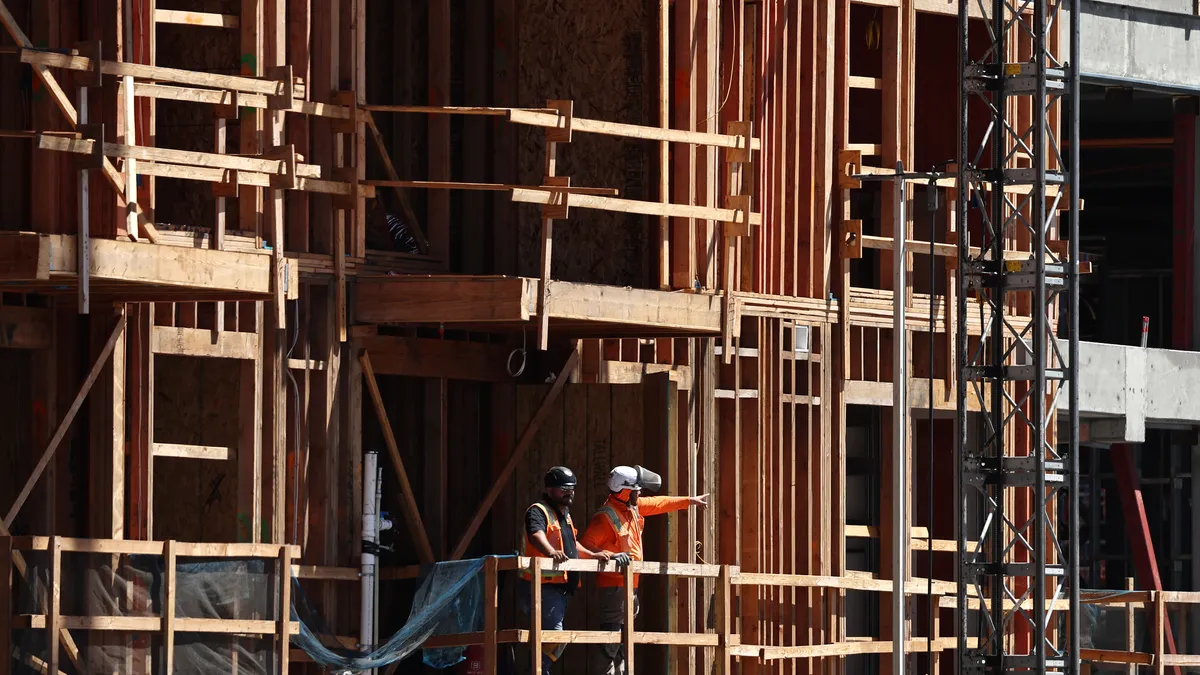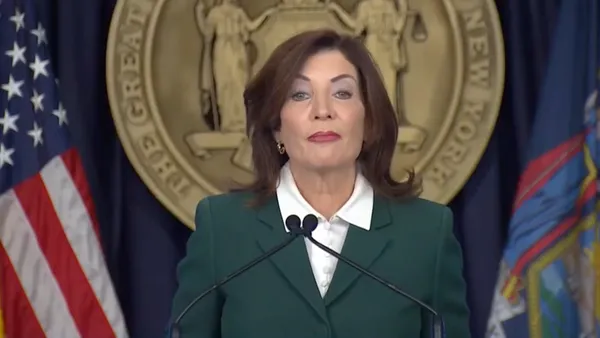Dive Brief:
- WalletHub released a study ranking the operating efficiency of 150 of the largest U.S. cities. The overall rankings were determined by each city's "Total Budget per Capita" rank, as well as its "Quality of City Services" rank, comprised of six metrics: financial stability, infrastructure and pollution, education, health, safety and economy.
- The study found the top 10 cities, and bottom 10 cities, are:
| Overall Rank | City | 'Quality of Services' Rank | 'Total Budget per Capita' Rank |
|---|---|---|---|
| 1 | Nampa, ID | 70 | 1 |
| 2 | Provo, UT | 9 | 2 |
| 3 | Boise, ID | 5 | 3 |
| 4 | Lexington-Fayette, KY | 63 | 4 |
| 5 | Missoula, MT | 80 | 5 |
| 6 | Sioux Falls, SD | 4 | 18 |
| 7 | Durham, NC | 26 | 12 |
| 8 | Lewiston, ME | 38 | 8 |
| 9 | Nashua, NH | 2 | 30 |
| 10 | Oklahoma City, OK | 66 | 9 |
| ... | ... | ... | ... |
| 141 | Hartford, CT | 129 | 142 |
| 142 | Cleveland, OH | 144 | 133 |
| 143 | Flint, MI | 147 | 128 |
| 144 | Chattanooga, TN | 118 | 146 |
| 145 | Oakland, CA | 87 | 147 |
| 146 | Gulfport, MS | 133 | 145 |
| 147 | San Francisco, CA | 21 | 149 |
| 148 | New York, NY | 36 | 148 |
| 149 | Detroit, MI | 150 | 121 |
| 150 | Washington, DC | 90 | 150 |
- In its methodology, WalletHub clarified, "The metrics used do not create a disadvantage for DC, despite its unusual status as a city/state, with the exception of the Long-Term Debt Outstanding per Capita metric. However, even with that metric removed, DC still ranks last. Thus, the District was included in this report."
Dive Insight:
City governance in the U.S. has proven an increasingly difficult task, as leaders have navigated challenging territories including climate change mitigation, trade policies and hostile relationships with state governments. Ronald V. Anglin, a dean and professor at Cleveland State University, told WalletHub, "There are no empirical indicators that you can use to define a well-run city. Running a city is an art because the variables that go into governing are so many and often random."
However WalletHub — an organization that often releases data-supported rankings on topics such as startup friendly states, best and worst college cities and state-level environmental policies — has challenged this notion with its annual ranking of city operating efficiency. The calculated findings, based off data from the U.S. Census Bureau, the Bureau of Labor Statistics, the Centers for Disease Control and Prevention and other databases, suggest a city's operation can be objectively measured, resulting in some backlash from the cities that were measured unfavorably.
WalletHub's 2017 list of "best- and worst-run cities in America" also ranked Nampa, ID in the top spot, with Washington, DC ranked 150. That list resulted in strong pushback from DC-based reporters, including Martin Austermuhle of WAMU 88.5. In a piece titled, "No, WalletHub: D.C. Is Not The Worst-Run City In The U.S. (And Comparing It To Other Cities Is Hard.)," Austermuhle wrote, "[I]t’s almost impossible to declare D.C. the worst-run city in the U.S. relying on data the way WalletHub did. Why? Because one of their main metrics — D.C.’s per-capita spending — is skewed in a way that makes the city look like it’s spending much more and getting far less out of it." He later went on to discredit the overall use of per-capita spending as a metric, calling it "problematic."
Some may also question how the "total budget per capita" measure affected the the overall ranking of cities like New York and San Francisco, despite those cities ranking fairly high for "quality of services" — and their status as the leading cities for metrics like tech development and inclusivity.
As WalletHub wrote, "Running a city is a tall order," and therefore measuring the effectiveness of leadership is a challenging task. The data compiled by WalletHub is just one way to evaluate city operation in the U.S., though leaders should take note that such rankings are not always definitive of a city's success.












